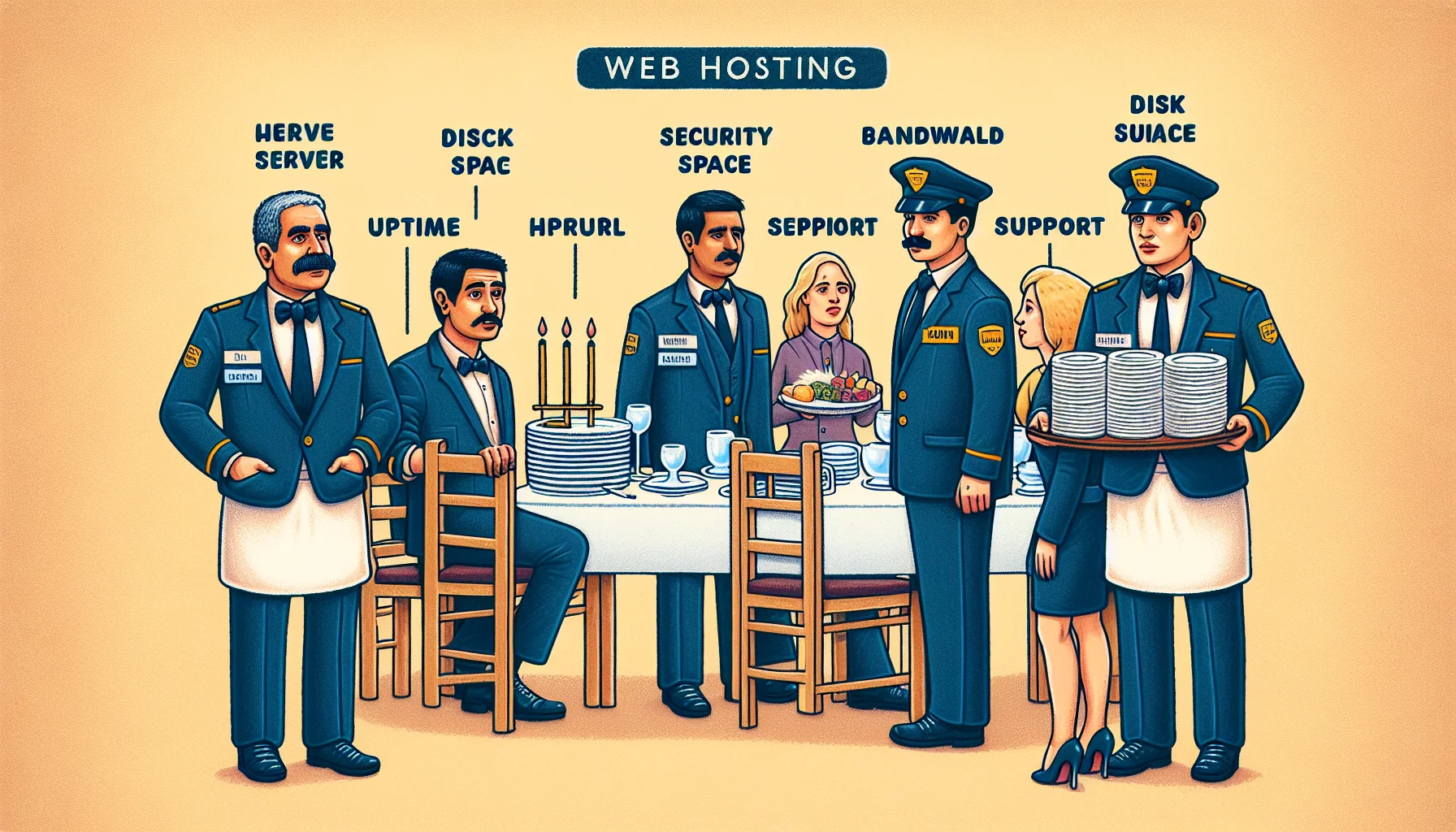Guide to Web Hosting Quiz
Test Your Knowledge
Question of
Guide to Web Hosting
Web hosting is a crucial service that allows individuals and organizations to make their website accessible on the internet. It involves renting or purchasing space on a server where your website's files are stored and served to users around the globe. The importance of choosing the right web hosting cannot be overstated, as it directly impacts your website's performance, security, and reliability. In this article, we will explore the different types of web hosting, factors to consider when choosing a hosting provider, and tips for managing your hosting environment effectively.
What is Web Hosting?
Web hosting is a service that allows individuals and organizations to post a website or web page onto the Internet. A web host, or web hosting service provider, is a business that provides the technologies and services needed for the website or webpage to be viewed in the Internet. Websites are hosted, or stored, on special computers called servers. When Internet users want to view your website, all they need to do is type your website address or domain into their browser. Their computer will then connect to your server and your webpages will be delivered to them through the browser. Essentially, web hosting is the process of renting or buying space to house a website on the World Wide Web. Website content such as HTML, CSS, and images has to be housed on a server to be viewable online.
Types of Web Hosting
- Shared Hosting
- VPS Hosting
- Dedicated Hosting
- Cloud Hosting
How to Choose a Web Hosting Service
Choosing the right web hosting service is crucial for the success of your website. Start by assessing your website's needs, such as the type of content you will host and the expected traffic. Consider the reliability and uptime guarantees offered by the host, as these are vital for keeping your site accessible to users. Look into the hosting provider's security features to protect your site from threats. Additionally, evaluate the scalability options to ensure your hosting can grow with your website. Customer support is also an important factor; choose a host that offers robust support channels. Lastly, compare pricing plans to find a service that offers good value for the features you need.
Top Web Hosting Providers
| Provider | Features | Pricing | Customer Reviews |
|---|---|---|---|
| Bluehost | Free domain for 1 year, SSL certificate, 24/7 support | Starting at $2.95/month | 4.5/5 |
| SiteGround | Daily backup, Free SSL, Email, 24/7 support | Starting at $3.99/month | 4.7/5 |
| HostGator | Free domain, Free SSL certificate, 99.9% uptime guarantee | Starting at $2.75/month | 4.4/5 |
| DreamHost | Free domain, Unlimited traffic, Fast SSD storage | Starting at $2.59/month | 4.6/5 |
| A2 Hosting | Free SSL, Unlimited SSD space, 24/7/365 support | Starting at $2.99/month | 4.5/5 |
Setting Up Your Web Hosting
- Choose a web hosting provider that suits your needs.
- Sign up for an account with the chosen provider.
- Select a hosting plan that meets your website's requirements.
- Register or transfer your domain name to the hosting provider.
- Set up your hosting account by filling in the necessary details.
- Install a Content Management System (CMS) like WordPress, if needed.
- Design your website or upload your existing website files via FTP.
- Configure your email accounts associated with your domain name.
- Test your website to ensure everything is working as expected.
- Publish your website and monitor its performance regularly.
Maintaining Your Web Hosting
Maintaining and managing your web hosting service is crucial for ensuring your website remains accessible, secure, and performs well. To effectively maintain your hosting, start by regularly updating your website's software, including the content management system (CMS), plugins, and themes, to protect against security vulnerabilities. Monitor your website's traffic to adjust resources and avoid downtime during peak periods. Implement security measures like SSL certificates, firewalls, and regular backups to safeguard your site against data loss and cyber threats. Additionally, optimize your website's loading speed by compressing images, using caching, and minimizing the use of heavy scripts. Stay in communication with your hosting provider to resolve any issues promptly and consider upgrading your hosting plan as your website grows. Regular maintenance is the key to a reliable and efficient web hosting experience.
Conclusion
The article provided a comprehensive overview of web hosting, emphasizing its critical role in making websites accessible on the internet. Key points highlighted include the various types of web hosting services available—such as shared, VPS, dedicated, and cloud hosting—each catering to different needs based on website size, traffic, and budget. The importance of factors like uptime, support, scalability, and security in choosing a web host was also discussed. Ultimately, selecting the right web hosting service is pivotal for website performance, affecting everything from load times to SEO rankings and overall user experience.












